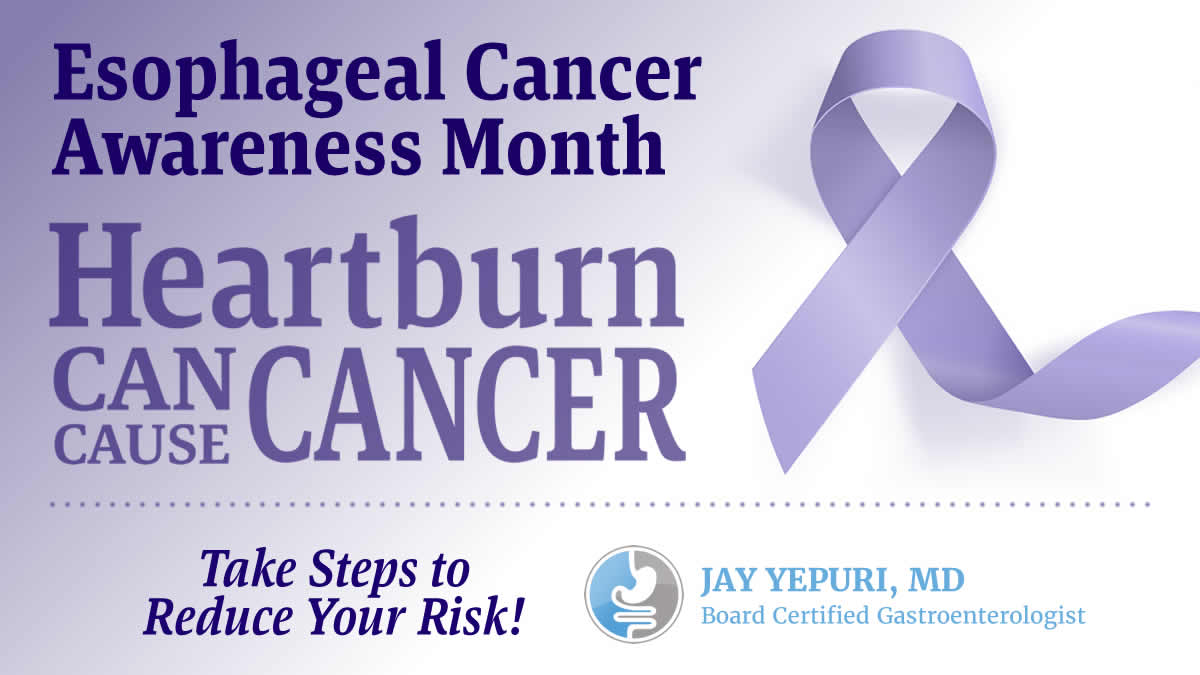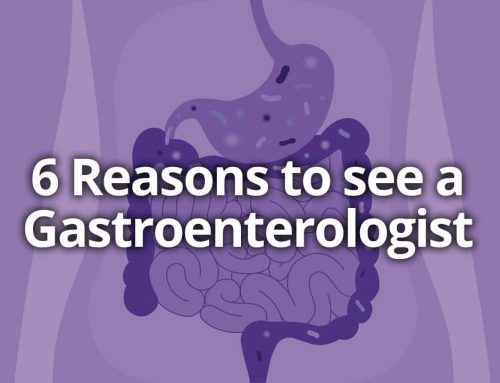April is Esophageal Cancer Awareness Month, and I wanted to help others better understand risk factors and recognize warning signs, which are crucial for improved detection and outcomes.
The esophagus propels food to the stomach. Esophageal cancer arises from abnormal cell growth in its lining. The two main types are:
- Squamous Cell Carcinoma: Originates in the surface lining, linked to tobacco and alcohol, typically in the upper/middle esophagus.
- Adenocarcinoma: Develops in glandular cells in the lower esophagus, often from Barrett’s esophagus (a precancerous condition due to chronic acid reflux), more common in Western countries and linked to GERD and obesity.
While the exact causes are unclear, several risk factors increase the likelihood: age (over 55), male sex, tobacco use (all forms), excessive alcohol consumption, chronic acid reflux (GERD), Barrett’s esophagus, obesity, poor diet (low in fruits/vegetables, high in processed meats), achalasia, previous head/neck cancer, and family history.
Symptoms
Early esophageal cancer often has no noticeable symptoms. Warning signs tend to appear as the cancer grows and affects esophageal function. Recognizing these and seeking medical attention promptly is vital. Common warning signs include:
- Dysphagia (Difficulty Swallowing): Often the earliest sign, starting with solids and progressing to softer foods and liquids as the esophagus narrows. It can feel like food is stuck.
- Unintentional Weight Loss: Significant weight loss due to difficulty eating and metabolic changes from the cancer.
- Chest Pain or Pressure: Pain or burning behind the breastbone, which may worsen with swallowing and can sometimes mimic heartburn. Persistent or worsening chest pain needs evaluation.
- New or Worsening Heartburn/Acid Reflux: New-onset or significantly worsening heartburn, especially with other warning signs, warrants investigation, particularly in those without prior history or if over-the-counter remedies don’t help.
- Regurgitation of Food: Undigested food may back up due to esophageal narrowing.
- Hoarseness or Chronic Cough: This can occur if the tumor affects the vocal cord nerve.
- Pain Behind the Breastbone or in the Throat: Persistent discomfort, especially during swallowing.
- Vomiting: Persistent nausea and vomiting due to blockage.
- Fatigue: Unexplained and persistent tiredness.
- Black or Tarry Stools: May indicate bleeding from the tumor.
Experiencing these symptoms doesn’t definitively mean cancer, as other conditions can cause similar issues. However, persistent or worsening warning signs should never be ignored. Prompt medical consultation with a digestive health specialist is crucial for diagnosis and timely intervention.
Diagnosis
Diagnosis involves physical examination, medical history, and tests like:
- Upper Endoscopy (EGD): A flexible tube with a camera examines the esophagus, stomach, and duodenum, allowing for visualization of abnormalities and biopsies.
- Biopsy: Microscopic examination of tissue samples confirms cancer and determines its type.
- Bronchoscopy: May be used for upper esophageal tumors to check airway involvement.
- Imaging Tests: Determine the cancer’s extent (staging):
- Endoscopic Ultrasound (EUS): Detailed imaging of the esophageal wall and nearby lymph nodes.
- Computed Tomography (CT) Scan: Cross-sectional images to assess tumor size and spread.
- Positron Emission Tomography (PET) Scan: Detects metabolically active cancer cells.
- Barium Swallow: X-ray using a barium liquid to visualize the esophagus.
Early detection significantly improves treatment success. When found early, treatment options like surgery, radiation, chemotherapy, and targeted therapy are more effective.
Summary
In conclusion, esophageal cancer can be a silent threat. Understanding risk factors and being aware of warning signs is vital for early detection. Raising awareness can empower individuals and potentially improve outcomes for those affected.
If you have new or persistent digestive symptoms or are looking for a board-certified gastroenterologist near you, don’t hesitate to contact us. You can request an appointment online or call our office at 817-267-8470.





